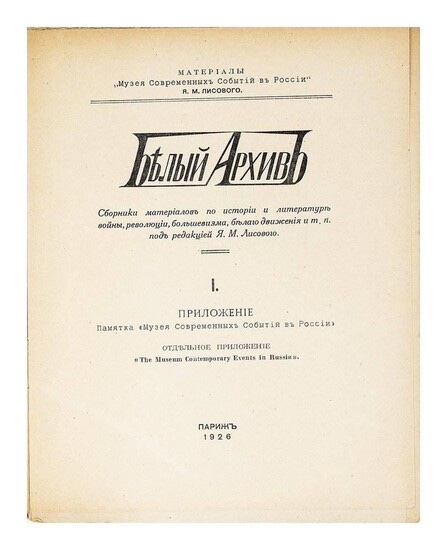
This will be a thread on the largest reference works that historian Jonathan Smele ever wrote, the two volume historical dictionary of the Russian Civil Wars. This will only be occasional posting, because the work is about as dense as you can get. But will put up rare infos. 



Much of the first part of this work is more or less a restating of his history, which is $700 dollars cheaper, but I will post these relevant passages about the Red Army and it’s early ideological driven disasters and departure from “Democratic militarism model” 

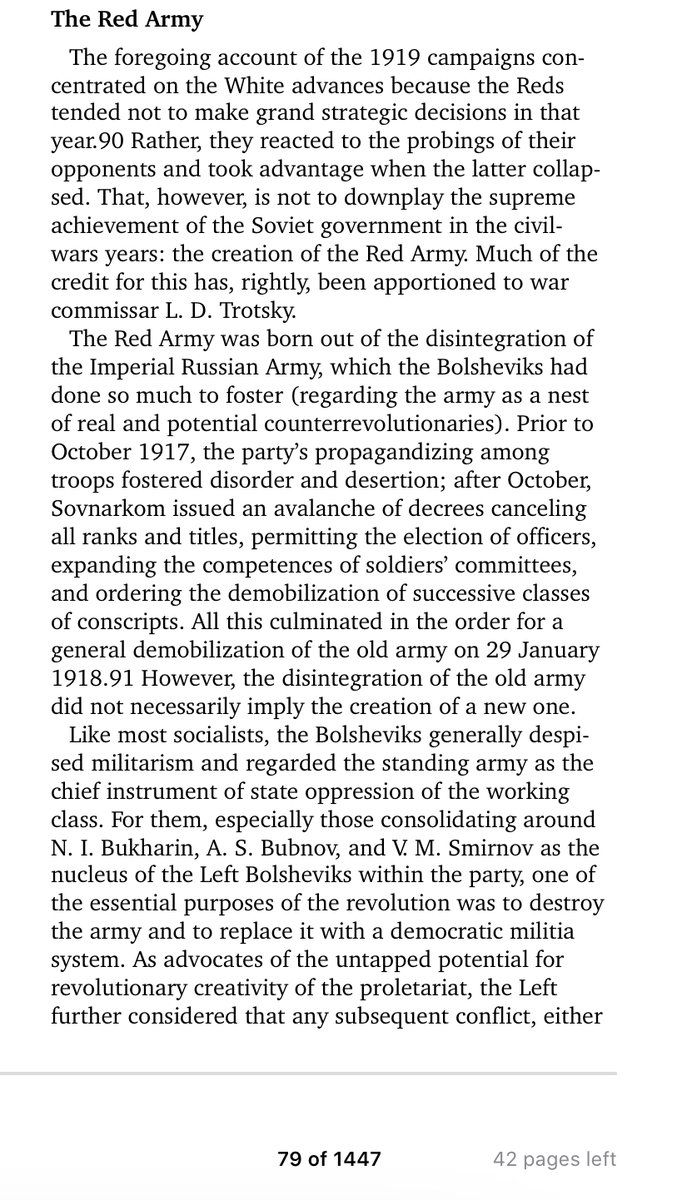

After the disasters of the ”11 day war”, the Czechoslovak Revolt, and an entire army dying in the Caucasus against a few thousand whites, the soldiers committees disappeared. Commissars and War Specialists became the organizational hierarchy of the Army. Still near half deserted. 

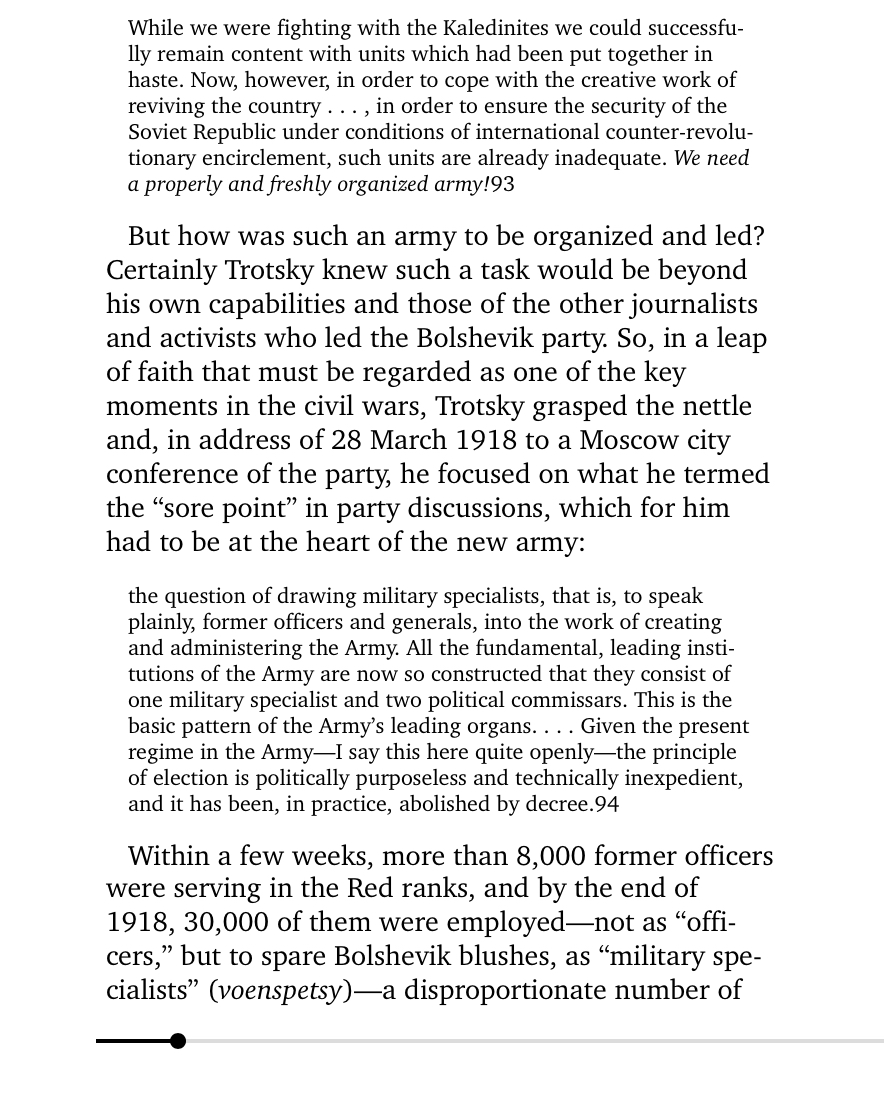

The Red Army also began a conscription census policy, that was widely unpopular and shirked at the beginning, but as more critical accesses to food and government services/patronage were denied to draft dodgers, peasants flooded into the Red Army for money, food, and citizenship 

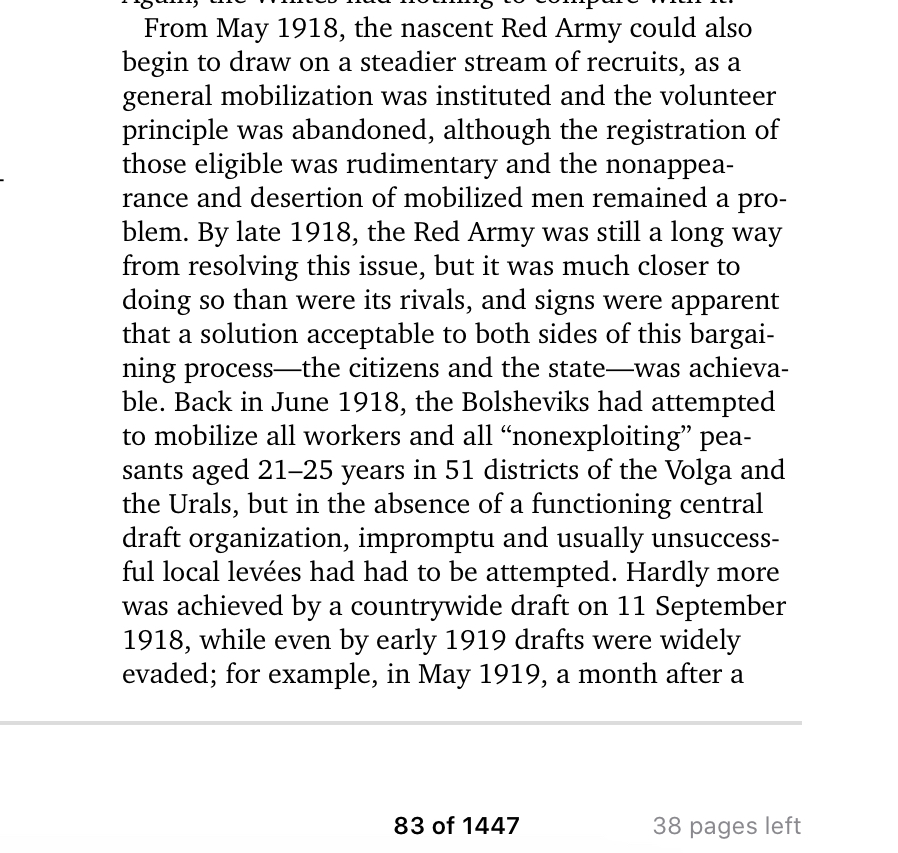
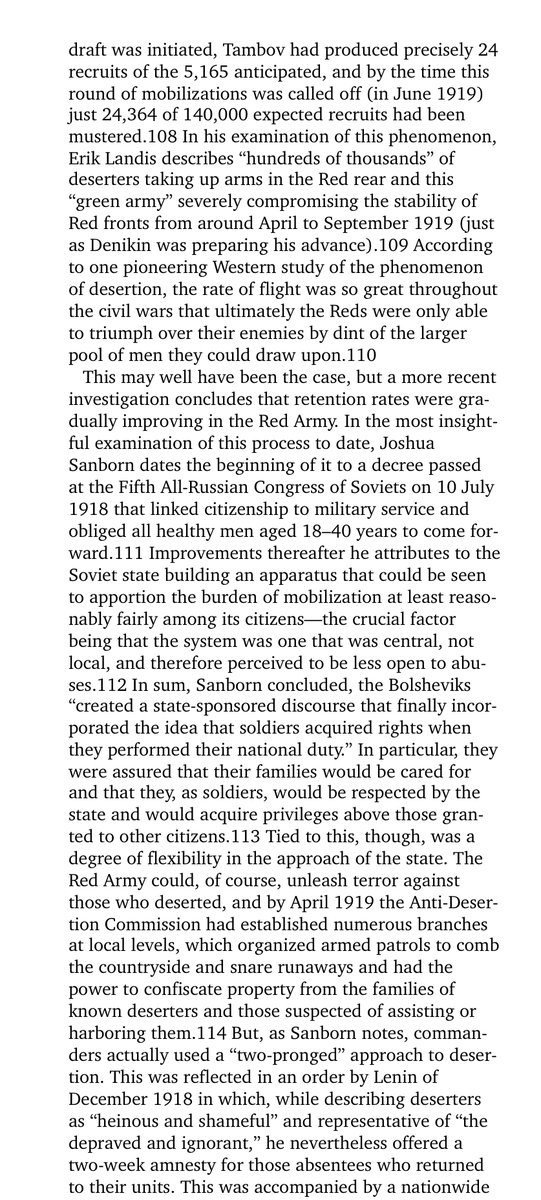
The Whites had a problem with forming a civic base to implement things like the Bolshevik verification of the draft and the commissars for the unruly elements of their movement, much of this was bread in the trauma of February when the army became political only to collapse. 


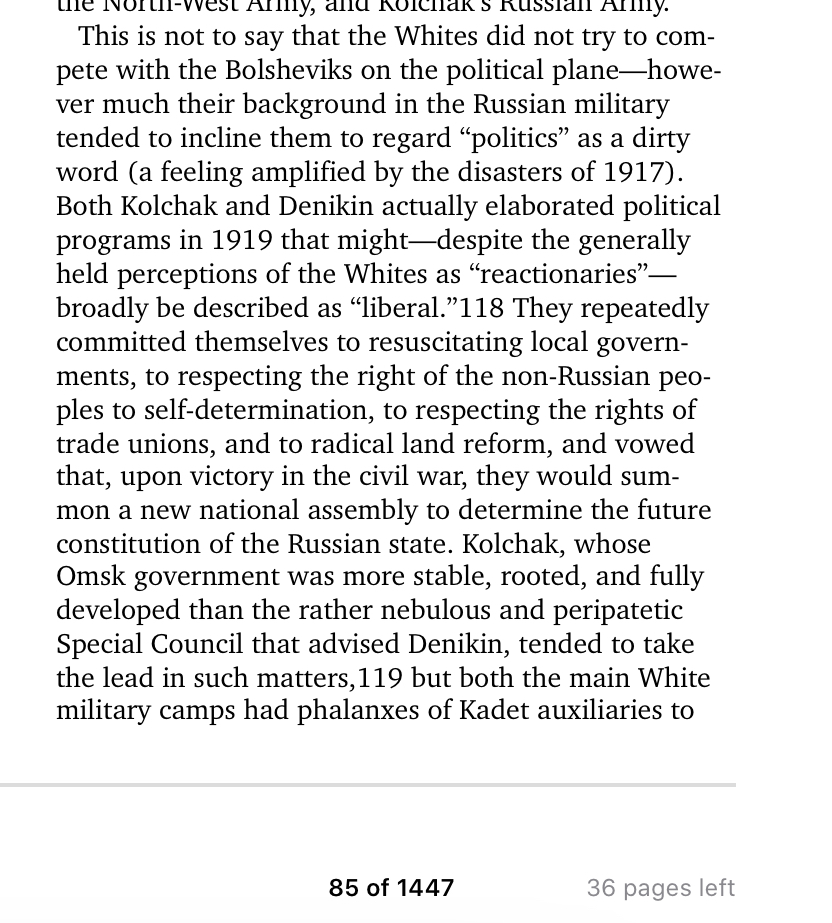
• • •
Missing some Tweet in this thread? You can try to
force a refresh






